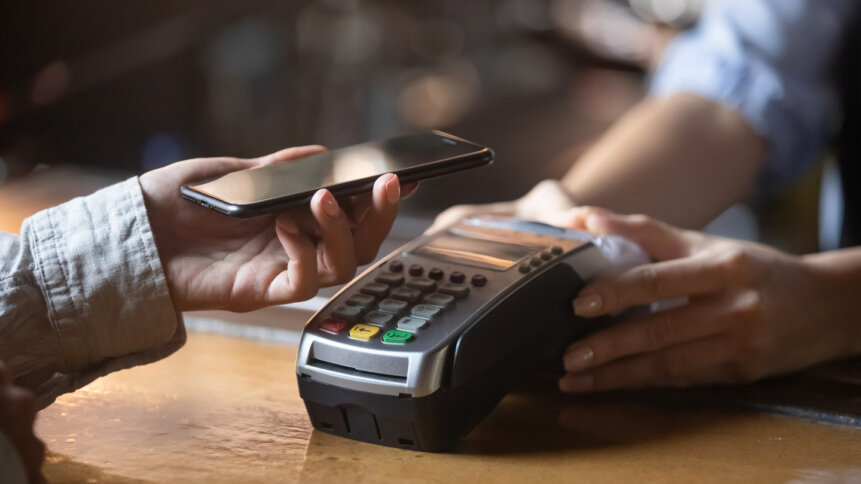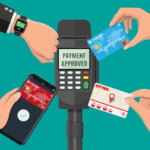The cashless society – a roadmap

In Part 1 of this article, we spoke to Martin Bradbury, Regional Director, Financial Services UK & Ireland at Dynatrace, a cloud provider that enables digital services for commercial clients (including providers of cashless transactions), about the drift towards the long-fabled cashless society in the UK. In Part 2, Martin outlined for us the issues of public trust that currently stand in the way of a truly “cashless society.”
While we had him in the chair it seemed only right to ask Martin for his map from where we are now – a situation in which there’s significant public distrust of the idea of a cashless society even in the UK – which is considerably further down the pathway than is the US – to the place he predicts that at least the UK will be within a decade, with cash purchases down from around 15% of cases to just 6%. What does the roadmap to at the very least a cash-lite society look like?
MB:
Well, as we said in Part 2, what’s likely to happen is that digital service providers, upto and including banks, are likely to respond to moments of system failure much faster, in the first instance – either to put things right, to guide service users through a process they might not have understood, and/or to compensate them for the inconvenience of a breakdown in the system-
THQ:
Does that mean a vast army of new, human, transaction-watchers, so that Steve in South London gets a call when his card gets declined at an automatic register in a gas station?
MB:
Ha. There probably isn’t a huge appetite for ramping up that kind of human interaction in a lot of businesses, but actually, the levels of automation and artificial intelligence that we can apply to these things now actually can deliver quite a good connected experience without having to have that human interaction, necessarily.
THQ:
To be fair, any spectacular rise in human automatic support would probably only lead to an uncontrollable wave of scammers, calling and pretending to be that support team.
So how do digital service providers actually move the dial on this and get more and more people comfortable with the idea of the oncoming cashless society?
MB:
It all starts with education – and that extends to those sorts of scams you mentioned, too. The more people know and understand, hopefully, the less often they’ll be caught by those trust-based scams, even though the level of sophistication there is rising. Education has to continue to outpace that.
THQ:
And is that the cornerstone of the roadmap to the cashless society – or at least the cash-lite society – of the future. Education, education, education?
MB:
I think so, yes. It’s a continuation of what the high street banks have been doing for some time, it’s having specific educational programs in place, it’s having people in branches that are trained specifically as digital champions to help customers onboard into the services.
One UK bank had an initiative a year or two ago, where they gave the elderly laptop tablets, they gave them education specifically around using digital services, helping them to get more comfortable with those services and that tech.
There will always be an element that just won’t like anything, that will be resistant to change, and that’s their prerogative, right? That means we still have to have the facilities for the people that don’t want to adopt those services, aren’t comfortable with using them, or particularly aren’t comfortable with the privacy aspect of them – because the consequence of having more traceability in a cashless society is that there will be more privacy concerns from people, for sure.
THQ:
That’s a visceral reaction, no? What are you tracing me for? I’m not a criminal. What do you want my data for? Why would you? Why should I give you that? What are you going to use it for?
Is there anything that can be done about that? Or is that just a natural built-in data point? There are going to be those people. Don’t attempt to solve for X, just build systems that accommodate them?
MB:
I think organizations can be very clear about what they do with data and what people’s privacy rights are, but frankly, I don’t necessarily think that makes a huge difference. I think the reality is that it’s largely a generational concern – not entirely, but largely – and I think that as the younger generations come through, who have had their whole life online with access to things digitally, naturally they will become more comfortable with it.
The counterargument for financial transaction knowledge is that it means the bank can use that to identify patterns and hopefully prevent fraud. That’s a valid argument that can be made to older generations, but whether any argument can outweigh that sense of intrusion that comes with service providers having intimate access to their data seems unlikely.
THQ:
What sort of timeline are we looking at for the UK to be as cashless a society as it’s going to be? Any idea how long it will take to make “peak progress” towards a cashless society, given that in Part 1, we saw that there’s no political capital to be made out of pushing for the UK to become a cashless society?
MB:
I don’t think anyone’s setting out a timeline for it, I think the forecast currently is that it will shift from 15% of payments made in cash right now down to 6% over around the next 10 years, which makes for a fairly gradual transformation, rather than a sudden jolt.
It all comes down to looking at countries that are further down the line on this journey and asking what’s the ultimate benefit here? And what’s the downside?
THQ:
So it’s more a kind of magnetic drift, you think? More and more places offering cashless options, just gradually shifting the landscape of what’s “normal”?
MB:
Yeah. I think there will be more and more services digitized so it becomes the default option. That will facilitate a gradual drift towards cashlessness. But I think as we do that, more thought will need to be put into the protection of the infrastructure and the certainly the environment to enable cash to still be a viable means of payment.
Going back to what we spoke about in Part 1, the cost of running the ATM infrastructure is about £5 billion pounds a year, and it’s largely borne by the banks. I’m sure, given the option, they’d like to reduce that cost burden. And as cash gets used as a default option less and less, clearly, that cost stands out more and more, so we might start to see a reduction of the network.
But that will take a kind of gentle pressure from governments – allowing retail outlets to give cash back without purchase, for instance. Things like that can help to mediate against that.
One interesting thing is that a leading UK building society last year saw an increase in ATM use, that it directly attributes to the cost of living crisis and the fact that people want to use cash to more effectively budget, because we know that that is one of the downsides of digital – the speed and ease it gives you to spend money and go over budget.
THQ:
You can’t stack up invisible money and say “This is what I actually have.” Whereas if you’ve got a pile of notes in front of you, you know exactly.
MB:
Absolutely. The UK’s certainly ahead of the US in that, and in terms of the speed of digital transactions showing – in the UK, it’s more or less instantaneous, whereas in the US, the lag is several days long in certain instances. But you’re absolutely right, you can’t guarantee what you actually have in digital terms right now, whereas with cash you have precisely the amount of cash you see in front of you.
THQ:
Hit us with a key takeaway. What’s the important psychological shift we’re going to need to undertake to make the journey towards a more cashless society?
MB:
The concept of taking a digital experience and thinking about it less generically and more in terms of its demographic, and how to optimize it for that demographic, I think is a really key thought process that we’re going to see more and more of as we progress down on this journey towards something that looks significantly more like a cashless society.
THQ:
So – gradual magnetic pull, a slow shift in the norm of society, and more contextually-optimized digital experiences. Sounds like a plan.










